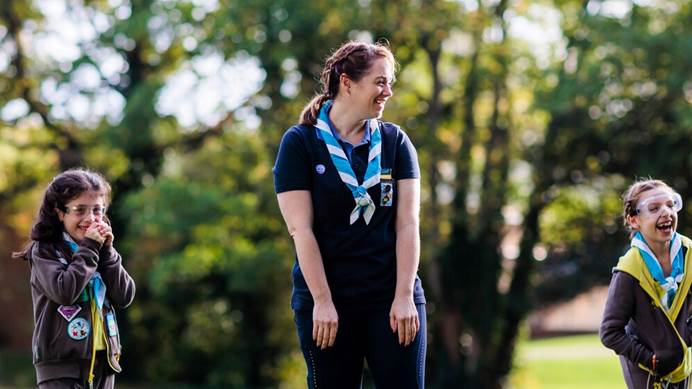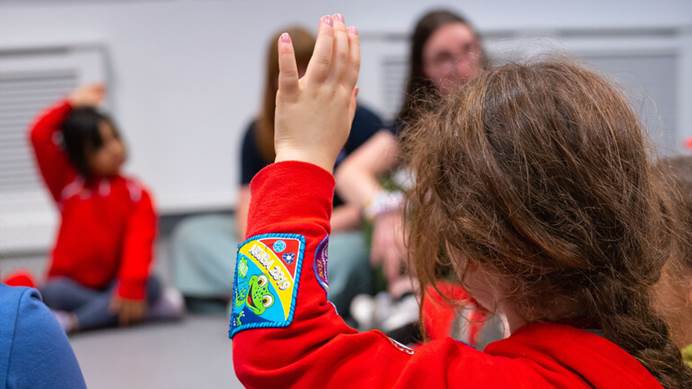About our brand
How our brand helps all girls know they can do anything
Our brand purpose is at the heart of everything we do - we help all girls know they can do anything.
'We help all girls know' shows that we offer girls a world of possibilities and that we’re helping to shape a future where all girls can be happy, safe, and fulfilled.
‘Can do anything’ works on 2 levels. It’s the huge variety of activities girls can do with us week in and week out. And it’s the attitude we encourage in each girl – a way of thinking about themselves and the world they live in.
Our Girlguiding personality has four characteristics that guide how we look and behave. These characteristics support the brand purpose:
- We’re encouraging – helpful and positive
- We’re welcoming – making sure all girls feel like they belong
- We’re curious – open minded and inquisitive
- We’re courageous – always willing to have a go
And we’re part of a family. Girlguiding is our masterbrand, it’s the look, feel and tone of our charity. It's how we create the right impressions and connect with the people who can make us stronger: our people, volunteers, partners, supporters and other organisations.
And under the Girlguiding masterbrand we have our section brands for girls.
Rainbows, Brownies, Guides and Rangers have their own distinct identities so they appeal to girls at different ages as they grow.
As we’re a family, all our sections have the Girlguiding masterbrand characteristics of curious and courageous, but each section also has its own unique personality:
- Rainbows are playful and carefree
- Brownies are energetic and excitable
- Guides are supportive and imaginative
- Rangers are proactive and optimistic
Our personality characteristics help remind us of our brand purpose. Read our brand guidelines for more on our brand strategy.



